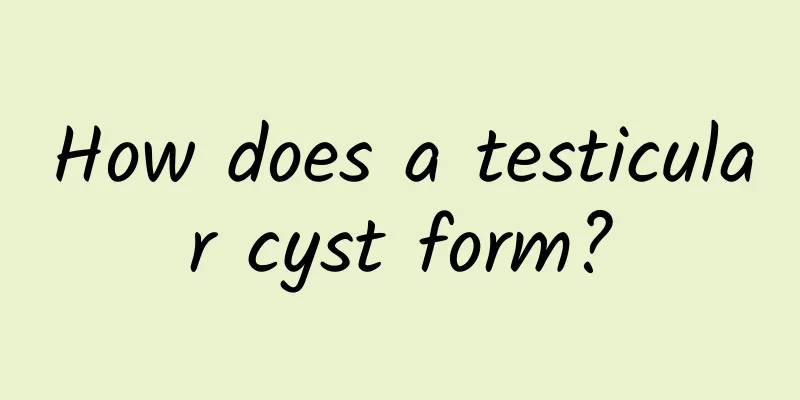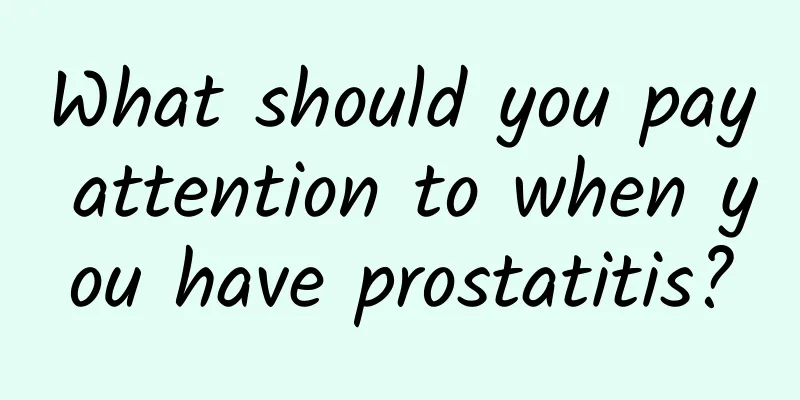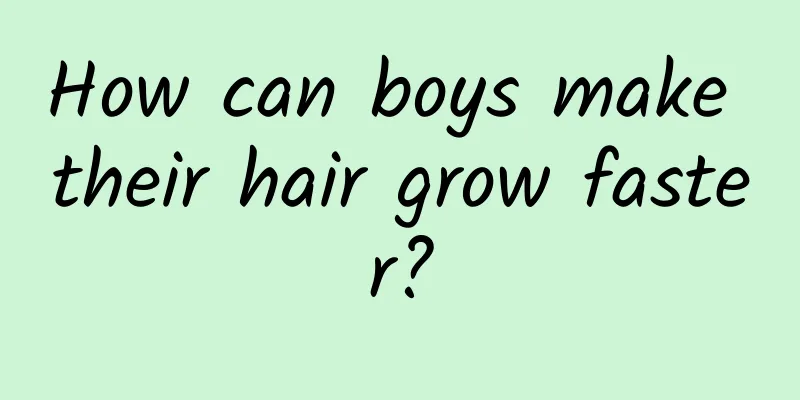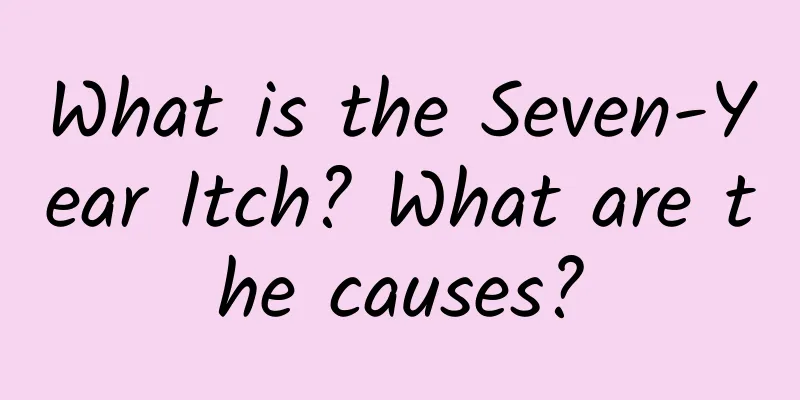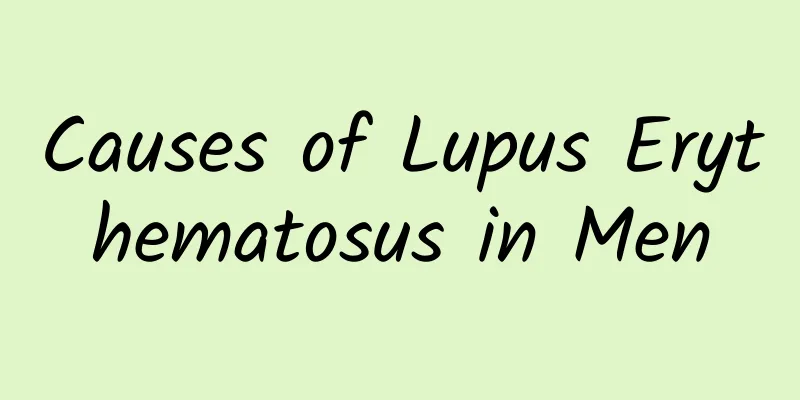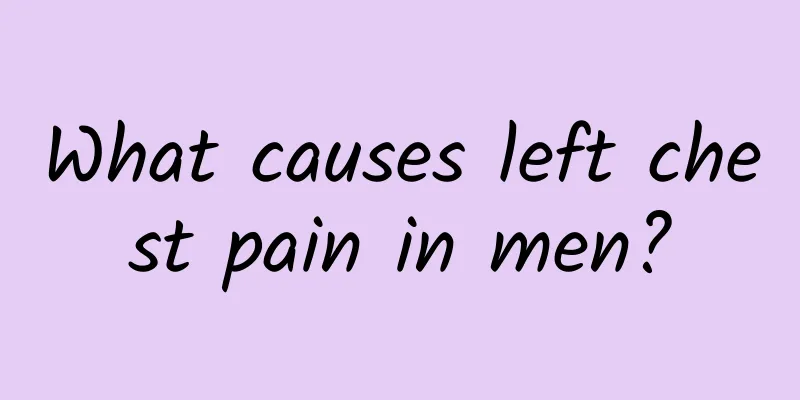What are the latest treatments for chronic prostatitis?
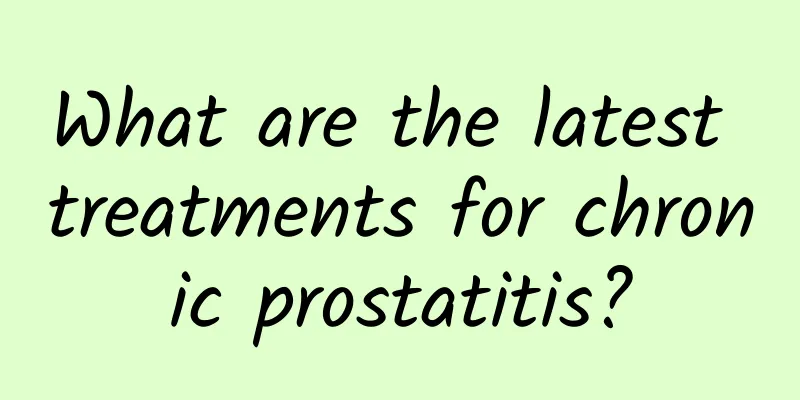
|
There are many reasons for chronic prostatitis, which are related to the environment and life. If you find that you are not feeling well, you must go to the hospital for examination as soon as possible so that you can receive early treatment and not miss the best treatment opportunity. If prostatitis becomes chronic, it will be more difficult to treat. See a doctor and follow the doctor's advice to slowly adjust your condition. During the process, keep a good mood and take medicine on time. Don't eat spicy food, don't smoke, and drink more water to urinate. Massage is also a good way. 1. General treatment Patients should conduct psychological counseling on their own, maintain a cheerful and optimistic attitude towards life, abstain from alcohol, and avoid spicy and irritating foods; avoid holding urine, sitting for long periods of time, and riding a bicycle or horse for long periods of time, pay attention to keeping warm, and strengthen physical exercise. 2. Drug treatment The most commonly used drugs are antibiotics, α-receptor blockers, herbal preparations and non-steroidal anti-inflammatory analgesics. Other drugs also have varying degrees of effectiveness in relieving symptoms. (1) Antibiotics Currently, in the clinical practice of treating prostatitis, the most commonly used first-line drug is antibiotics, but only about 5% of patients with chronic prostatitis have clear bacterial infection. Chronic bacterial prostatitis: antibiotics are selected based on bacterial culture results and the ability of the drug to penetrate the prostate. After prostatitis is confirmed, the course of antibiotic treatment is 4 to 6 weeks, during which the patient should undergo periodic efficacy evaluation. Intraprostatic injection of antibiotics is not recommended. Chronic nonbacterial prostatitis: Antibiotic treatment is mostly empirical treatment, and the theoretical basis is to speculate that certain pathogens that are negative in routine culture cause the occurrence of this type of inflammation. Therefore, it is recommended to take oral antibiotics such as fluoroquinolone for 2 to 4 weeks, and then decide whether to continue antibiotic treatment based on the feedback of the efficacy. Only when the clinical symptoms are indeed alleviated, it is recommended to continue the use of antibiotics. The recommended total course of treatment is 4 to 6 weeks. (2) α-receptor blockers α-receptor blockers can relax the smooth muscles of the prostate and bladder and improve lower urinary tract symptoms and pain, thus becoming a basic drug for the treatment of type II/type III prostatitis. Different α-receptor blockers can be selected according to the patient's condition. The recommended α-receptor blockers are: doxazosin, naftopidil, tamsulosin and terazosin. The results of controlled studies show that the above drugs have different degrees of improvement on patients' urination symptoms, pain and quality of life index. (3) Plant preparations Plant preparations are increasingly valued for their therapeutic effects on type II and type III prostatitis and are recommended as therapeutic drugs. Plant preparations mainly refer to pollen preparations and plant extracts, which have a wide range of pharmacological effects, such as non-specific anti-inflammatory, anti-edema, and promoting bladder detrusor contraction and urethral smooth muscle relaxation. Recommended plant preparations include: Pusitai, Sabah palm and its extracts. Due to the large number of varieties, the usage and dosage must be determined according to the patient's specific condition, and the course of treatment is usually in months. Adverse reactions are relatively small. (4) Nonsteroidal anti-inflammatory analgesics Nonsteroidal anti-inflammatory analgesics are empirical medications for the treatment of symptoms associated with type III prostatitis. Their main purpose is to relieve pain and discomfort. (5) M-receptor blockers: For patients with prostatitis who have symptoms such as urgency, frequency and nocturia but no urinary tract obstruction, M-receptor blockers (such as tolterodine) can be used for treatment. (6) Antidepressants and anti-anxiety drugs For patients with chronic prostatitis who also have mood disorders such as depression and anxiety, antidepressants and anti-anxiety drugs can be used while treating prostatitis. These drugs can not only improve the patient's mood disorder symptoms, but also relieve physical symptoms such as abnormal urination and pain. When using these drugs, you must pay attention to the prescription regulations and adverse reactions of these drugs. The antidepressants and anti-anxiety drugs that can be selected mainly include selective serotonin reuptake inhibitors, tricyclic antidepressants and other drugs. (7) Chinese medicine and Chinese herbal medicine are recommended for the treatment of prostatitis in accordance with the relevant standards of the Chinese Medicine Association or the Chinese Society of Integrated Traditional Chinese and Western Medicine. Chronic prostatitis can be cured with current technology. Both Chinese and Western medicines have different treatment plans. Patients can try both methods. Currently, the most common treatment for prostatitis is antibiotics. Another treatment method is massage. During exercise and treatment, you cannot rely solely on drugs. You also need to rely on exercise and maintain a good mood. Chronic prostatitis needs to be treated slowly according to the doctor's instructions. |
<<: How to treat chronic prostatitis
>>: What is the treatment for chronic prostatitis in men?
Recommend
You must know the signals sent by men’s genital eczema!
Men's sexual organ diseases are still relativ...
What is the Yang-enhancing Qigong method?
If male friends do not pay attention to their dai...
The habit of wanting to love someone to death should not exist
Beware! These habits can really ruin your kidneys...
A man's "uncle" often visits on full-moon nights
It is well known that "Aunt" will visit...
How to slow down ejaculation?
In a family, whether the husband and wife are har...
How to treat orchitis?
Some men often have symptoms of testicular inflam...
What are the benefits of eating Guyuan Paste for men?
Guyuan Paste, also known as Ejiao Paste, is a hea...
What to do if sperm motility is low
Many married couples have difficulty conceiving. ...
How much does circumcision surgery usually cost?
Many male friends have the problem of phimosis. W...
Is nonbacterial prostatitis dangerous?
Whether it is a male disease or a sexually transm...
Five steps to remove forehead wrinkles without leaving any traces
In modern society, many people are under great pr...
What are the methods for men to nourish the kidneys in spring?
Men's spring kidney-tonifying medicine is sel...
What medicine to take for epididymal cyst
Epididymal cyst is a common male disease and a di...
What are the treatments for mycoplasma infection in men?
Mycoplasma infection has a great impact on the pa...
What is the difference between prostatitis and prostatic hyperplasia?
Modern people are under great competition pressur...
